BMW iX1 vs Hyundai IONIQ 9 - Differences and prices compared
Compare performance (313 HP vs 428 HP), boot space and price (41800 £ vs 58700 £ ) at a glance. Find out which car is the better choice for you – BMW iX1 or Hyundai IONIQ 9?
Costs and Efficiency:
Price and efficiency are key factors when choosing a car – and this is often where the real differences emerge.
BMW iX1 has a decisively advantage in terms of price – it starts at 41800 £ , while the Hyundai IONIQ 9 costs 58700 £ . That’s a price difference of around 16886 £.
In terms of energy consumption, the advantage goes to the BMW iX1: with 15.80 kWh per 100 km, it’s noticeable more efficient than the Hyundai IONIQ 9 with 19.90 kWh. That’s a difference of about 4.10 kWh.
As for electric range, the Hyundai IONIQ 9 performs noticeable better – achieving up to 620 km, about 157 km more than the BMW iX1.
Engine and Performance:
Power, torque and acceleration say a lot about how a car feels on the road. This is where you see which model delivers more driving dynamics.
When it comes to engine power, the Hyundai IONIQ 9 has a evident edge – offering 428 HP compared to 313 HP. That’s roughly 115 HP more horsepower.
In acceleration from 0 to 100 km/h, the Hyundai IONIQ 9 is slight quicker – completing the sprint in 5.20 s, while the BMW iX1 takes 5.60 s. That’s about 0.40 s faster.
In terms of top speed, the Hyundai IONIQ 9 performs slight better – reaching 200 km/h, while the BMW iX1 tops out at 180 km/h. The difference is around 20 km/h.
There’s also a difference in torque: Hyundai IONIQ 9 pulls clearly perceptible stronger with 700 Nm compared to 494 Nm. That’s about 206 Nm difference.
Space and Everyday Use:
Cabin size, boot volume and payload all play a role in everyday practicality. Here, comfort and flexibility make the difference.
Seats: Hyundai IONIQ 9 offers distinct more seating capacity – 7 vs 5.
In curb weight, BMW iX1 is distinct lighter – 1940 kg compared to 2594 kg. The difference is around 654 kg.
In terms of boot space, the BMW iX1 offers noticeable more room – 490 L compared to 338 L. That’s a difference of about 152 L.
In maximum load capacity, the Hyundai IONIQ 9 performs clearly perceptible better – up to 2419 L, which is about 924 L more than the BMW iX1.
When it comes to payload, Hyundai IONIQ 9 distinct takes the win – 643 kg compared to 495 kg. That’s a difference of about 148 kg.
Who wins the race in the data check?
The Hyundai IONIQ 9 is far ahead overall in the objective data comparison.
This result only shows which model scores more points on paper – not which of the two cars feels right for you.
Costs and Consumption
View detailed analysis
Engine and Performance
View detailed analysis
Dimensions and Body
View detailed analysis

Hyundai IONIQ 9
BMW iX1
The BMW iX1 wraps BMW's electric ambition into a compact SUV package that feels unexpectedly premium, with sharp handling and a crisp, modern cabin that keeps the driver in charge. It's ideal for buyers who want a stylish, quiet daily driver with useful practicality and tech-savvy touches — plus enough character to make the commute feel less like a chore and more like a short joyride.
details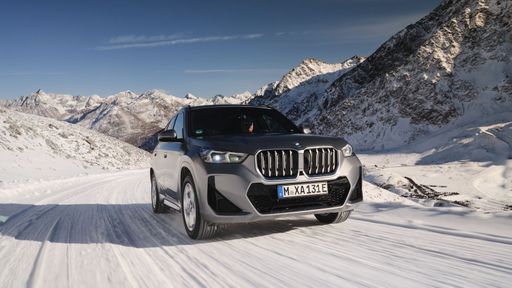
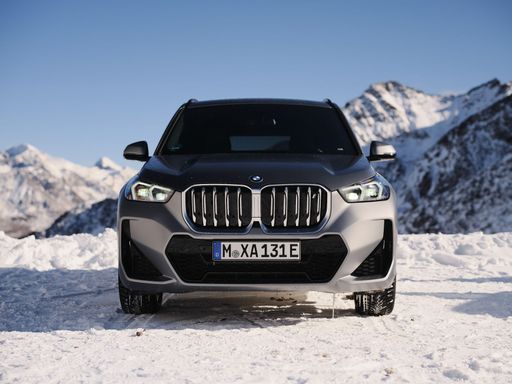
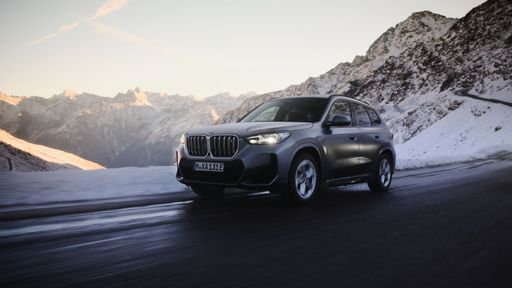
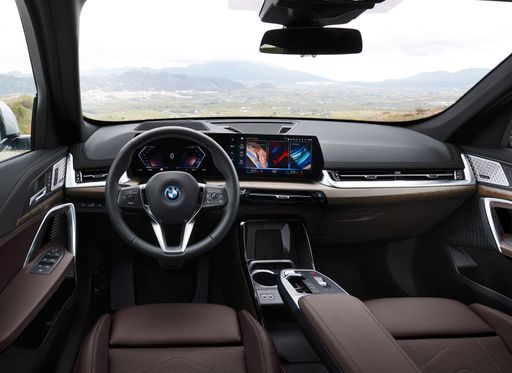
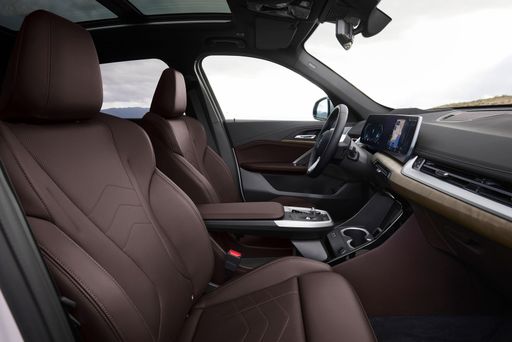
Hyundai IONIQ 9
The Hyundai IONIQ 9 is a bold step forward in the automotive world, combining cutting-edge electric technology with a sleek and modern design. This model stands out with its spacious interior and advanced features, ensuring both comfort and convenience for drivers and passengers alike. As Hyundai pushes the envelope in eco-friendly innovation, the IONIQ 9 represents the future of sustainable driving with its impressive range and performance capabilities.
detailsCosts and Consumption |
|
|---|---|
|
Price
41800 - 54600 £
|
Price
58700 - 74400 £
|
|
Consumption L/100km
-
|
Consumption L/100km
-
|
|
Consumption kWh/100km
15.8 - 17.1 kWh
|
Consumption kWh/100km
19.9 - 20.6 kWh
|
|
Electric Range
436 - 463 km
|
Electric Range
600 - 620 km
|
|
Battery Capacity
64.80 kWh
|
Battery Capacity
110 kWh
|
|
co2
0 g/km
|
co2
0 g/km
|
|
Fuel tank capacity
-
|
Fuel tank capacity
-
|
Dimensions and Body |
|
|---|---|
|
Body Type
SUV
|
Body Type
SUV
|
|
Seats
5
|
Seats
7
|
|
Doors
5
|
Doors
5
|
|
Curb weight
1940 - 2085 kg
|
Curb weight
2594 - 2689 kg
|
|
Trunk capacity
490 L
|
Trunk capacity
338 L
|
|
Length
4500 mm
|
Length
5060 mm
|
|
Width
1845 mm
|
Width
1980 mm
|
|
Height
1616 mm
|
Height
1790 mm
|
|
Max trunk capacity
1495 L
|
Max trunk capacity
2419 L
|
|
Payload
495 kg
|
Payload
586 - 643 kg
|
Engine and Performance |
|
|---|---|
|
Engine Type
Electric
|
Engine Type
Electric
|
|
Transmission
Automatic
|
Transmission
Automatic
|
|
Transmission Detail
Reduction Gearbox
|
Transmission Detail
Reduction Gearbox
|
|
Drive Type
Front-Wheel Drive, All-Wheel Drive
|
Drive Type
Rear-Wheel Drive, All-Wheel Drive
|
|
Power HP
204 - 313 HP
|
Power HP
218 - 428 HP
|
|
Acceleration 0-100km/h
5.6 - 8.6 s
|
Acceleration 0-100km/h
5.2 - 9.4 s
|
|
Max Speed
170 - 180 km/h
|
Max Speed
190 - 200 km/h
|
|
Torque
250 - 494 Nm
|
Torque
350 - 700 Nm
|
|
Number of Cylinders
-
|
Number of Cylinders
-
|
|
Power kW
150 - 230 kW
|
Power kW
160 - 315 kW
|
|
Engine capacity
-
|
Engine capacity
-
|
General |
|
|---|---|
|
Model Year
2022 - 2023
|
Model Year
2025
|
|
CO2 Efficiency Class
A
|
CO2 Efficiency Class
A
|
|
Brand
BMW
|
Brand
Hyundai
|
Is the BMW iX1 offered with different drivetrains?
The BMW iX1 is available as Front-Wheel Drive or All-Wheel Drive.




